Met Police ‘four times more likely’ to use force on black people
BBC News, 30 July 2020
By Sam Francis & Tarah Welsh & Zack Adesina
Metropolitan Police officers are four times more likely to use force against black people compared with the white population, new figures have suggested.
Restraint techniques are also more likely to be used on black people, according to force records.
A serving officer told the BBC this was because police found black people “more threatening and aggressive”.
Scotland Yard said “the causes of disproportionality are not straightforward”.
Assistant Commissioner Nick Ephgrave told the BBC the police response could only be judged when taking into account “the types of crimes committed, the type of demographics of individuals involved in those crimes”.
The Met used force 159,000 times in 2019-20, with more than a third of cases involving black people.
While force was used on white people more often, the rate of incidents was lower compared to the proportion of London’s population that was white, according to Greater London Authority estimates.
The Met Police are more likely to use force against black people than other ethnicities
A serving officer, who spoke to the BBC on condition of anonymity, said: “As far as they’re concerned black people are more aggressive.
“You should calm them down but instead they are keen to put hands on first because it’s flight or fight.
“Particularly with black men, if a black person is upset, saying ‘it’s hurting’, they say ‘it looks fine to me’.”
Restraint techniques and unarmed skills – which include wristlocks, strikes, takedowns and ground-pinning – are three times as likely to be used on black people than on white people, according to BBC analysis of Met Police data.
In 2019-20 the Met used restraint 18 times on black people per 1,000 of the population on average. For white people, restraint was used five times per 1,000 of the population.
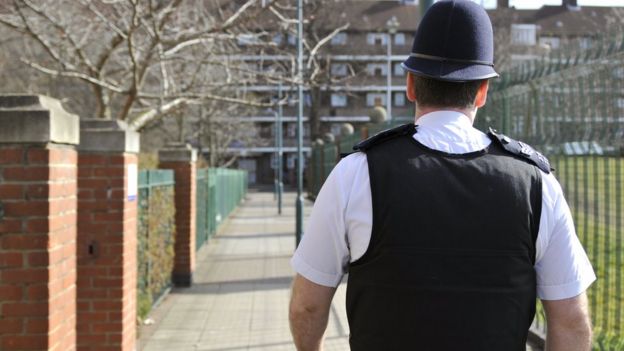
The Independent Office for Police Conduct (IOPC) has launched an investigationinto several incidents of apparent disproportionate use of force across London.
Since 1 April 2017, police forces in Britain have had to keep a detailed record of each time an officer has used force.
Techniques such as verbal instructions and using firearms must also be recorded.
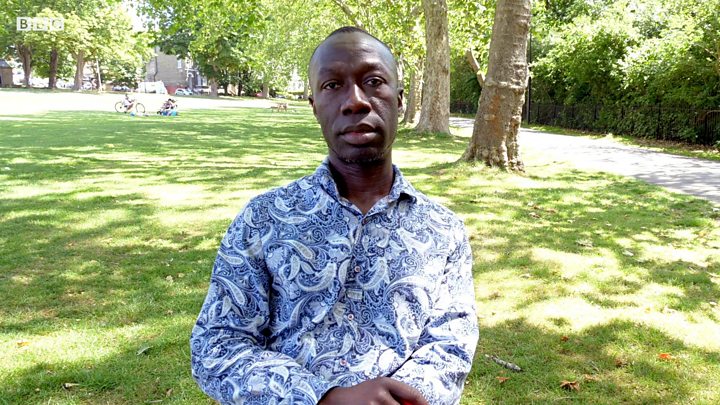
‘I couldn’t breathe’
Nathan Addae said he contemplated suicide after he was knocked unconscious during an arrest for alleged taxi touting at Heathrow Airport.
During the arrest in October 2013, Mr Addae said, the police confirmed he was working on a pre-booked job.
Despite this he said he was arrested and handcuffed with his arms behind his back.
If the police did not “arrest me because I’ve done something” they must have had “a completely different motive”, Mr Addae said.
“That’s when I realised it was going to be a racial case.”
Mr Addae was arrested in a section of Heathrow Airport car park with no CCTV.
While he was in handcuffs, police escalated the use of force, Mr Addae alleged. He said he was tripped over and an officer knelt on his chest.
“I couldn’t breathe. I couldn’t do anything. I kept telling them I couldn’t breathe,” he said.
“I didn’t think I was going to survive.”
Six officers then carried Mr Addae to the police van.
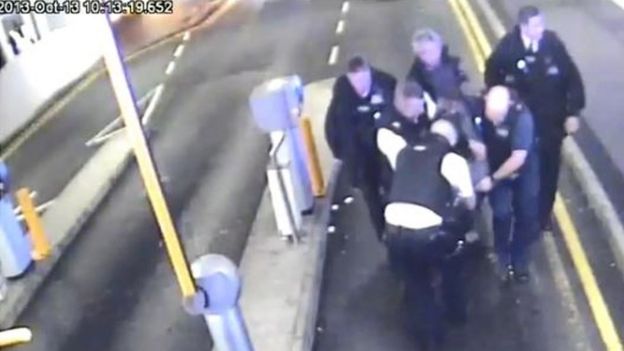
Police said Mr Addae was resisting arrest and bit an officer but he was cleared of all charges by magistrates.
“Any time I go out the fear of a police car behind me or fear of police alarm is constant,” he said.
“During this there have been times I’ve contemplated suicide.”
Mr Addae made a formal complaint to the police watchdog the IOPC, which found there was no case to answer regarding his arrest.
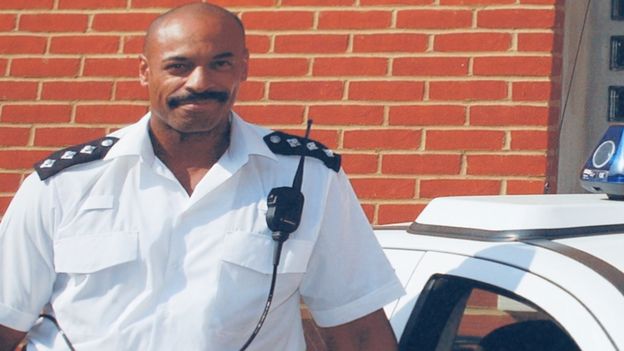
Rod Charles, the great uncle of Rashan Charles, a 20-year-old who died after he was restrained by police in July 2017, said “the majority of police do good work”.
Mr Charles, a former chief inspector in the Met Police, told the BBC he “stands firmly with any officer who has to use lethal force and the highest level of force when necessary”.
“We also need to acknowledge that some police officers are letting society down,” he said.
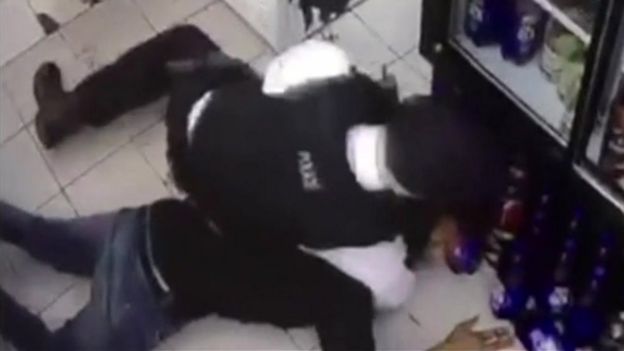
Mr Charles, who now trains officers in how to use force, said: “There are some people who think that there is a superior race, and superior beings to others.
“If you have those people in the police force they will treat people in an inhuman way.
“As a manager I always forgave a mistake. But racism and prejudice, that’s not a mistake, that’s a personality trait.”
Not disciplining officers for inappropriate use of force “makes it impossible for officers doing a fantastic job”, Mr Charles said.
Met Police 2019-20
- 159,419 use of force incidents were recorded
- 48black people per 1,000 population had force used on them
- 13white people per 1,000 population had force used on them
- 5,310Met officers were injured while carrying out use of force
- 84%of incidents resulted in an arrest
Source: Met Police
Assistant commissioner Mr Ephgrave said he was “worried” by the “disproportionality” in the use of force.
“We are trying to prevent young people from whatever background being injured and becoming victims of gun crime, knife crime and serious violence,” he said.
“And we have to therefore focus our efforts on those who are involved in perpetrating that violence – and that’s going to end up in disproportionate interactions.
“I take no pleasure in saying this, and it must be hard reading for people from black and minority ethnic backgrounds, but we do know that black men are disproportionately affected by these types of crimes.
“If you simply look at disproportionality you’re not seeing the full picture.”
Mr Ephgrave said he did not know if there was “unconscious bias” among Met Police officers.
“But every action is scrutinised,” he said.
“Through that use of scrutiny we hope to be as open and transparent as possible and let the public decide.”




